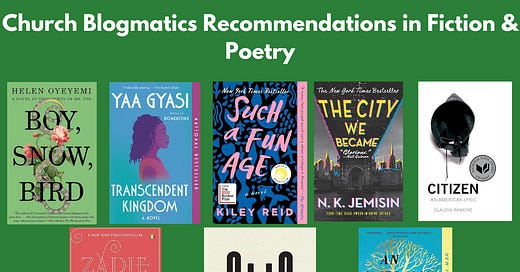Gentle reader,
In honor of black history month, I’ve got some amazing book recommendations for you.
I’ve been shaped by African American literature since I first read Alice Walker when I was a freshman in high school, and in recent years I’ve been transformed by calls to be intentional about reading beyond one’s own culture and sphere. For examples of wo…
Keep reading with a 7-day free trial
Subscribe to Church Blogmatics by Beth Felker Jones to keep reading this post and get 7 days of free access to the full post archives.




